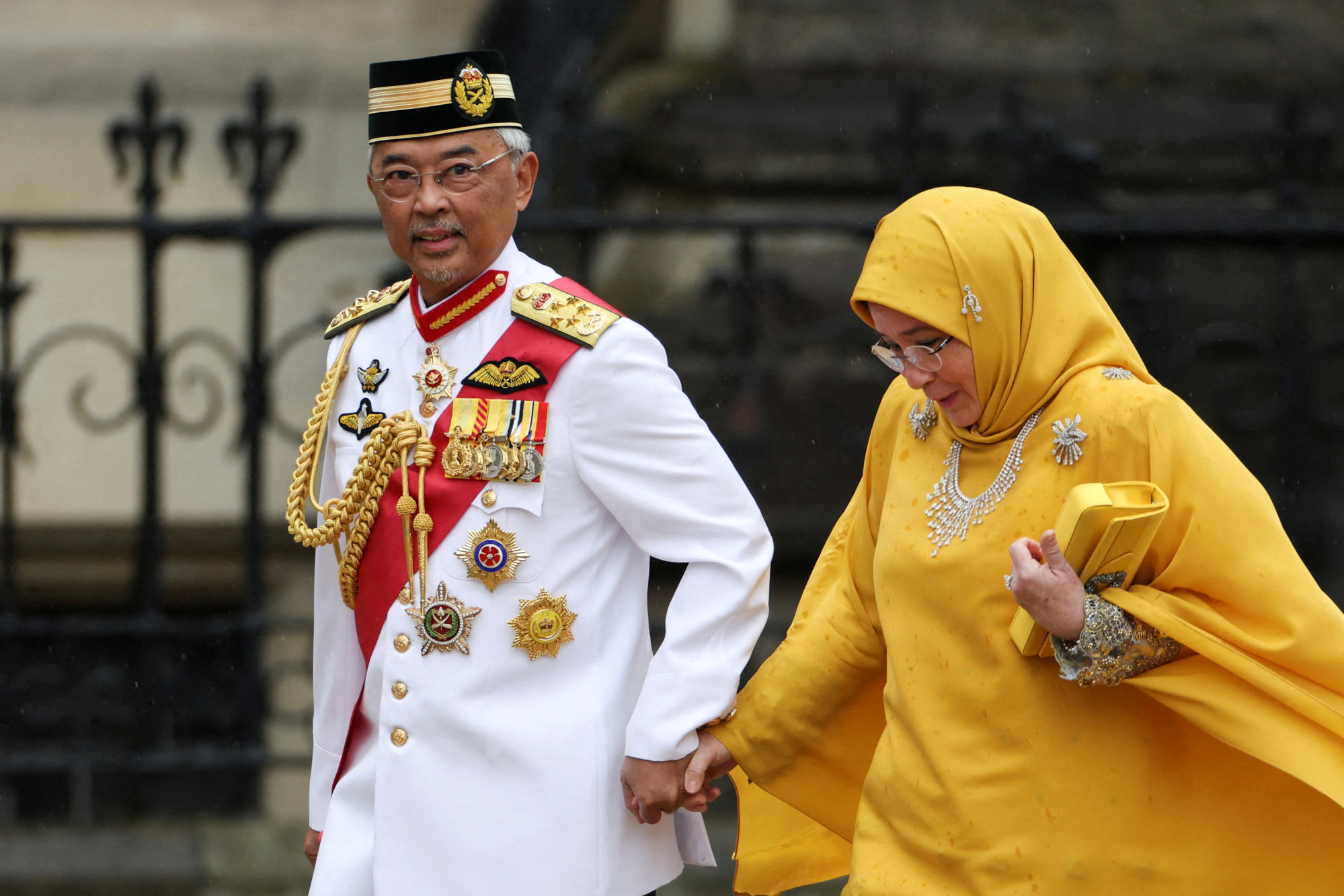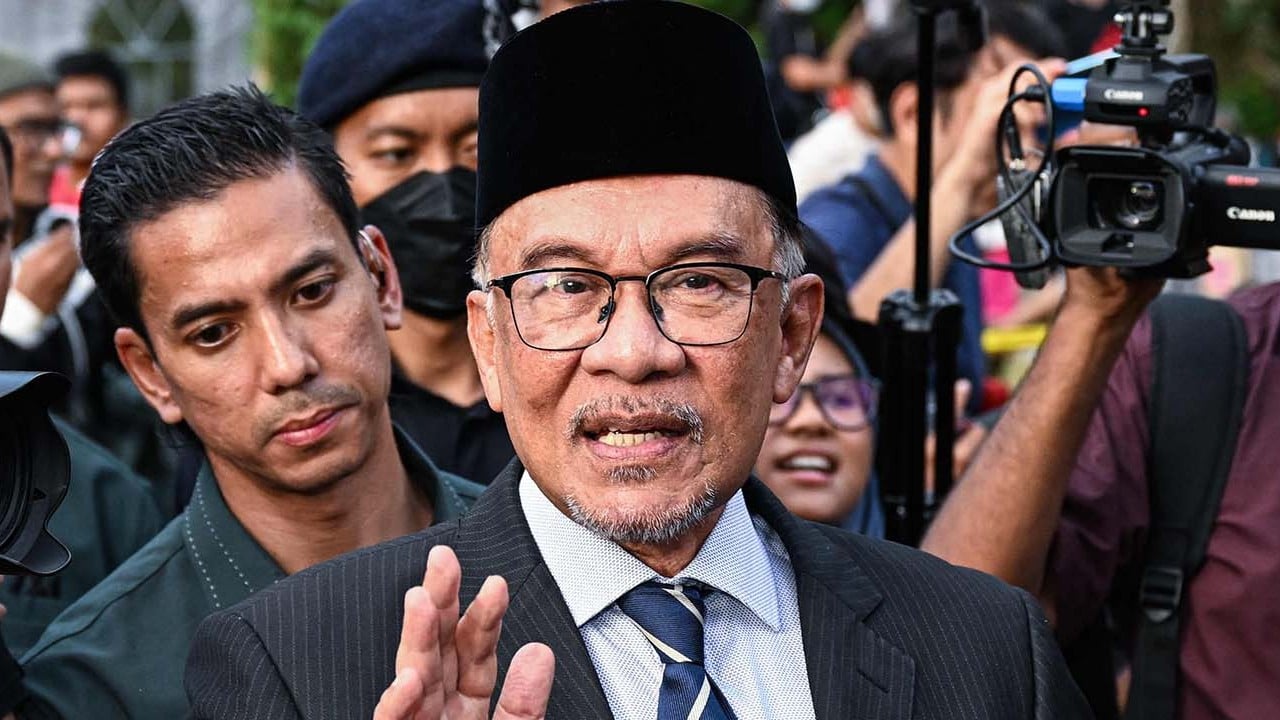
Malaysian government will ‘defend’ royals against insults, PM Anwar says ahead of state polls
- Last week, former leader Mahathir Mohamad was questioned by police for allegedly insulting royalty
- PM Anwar’s declaration of his administration’s unwavering defence of the royal institution could be read as an effort to shore up his credentials among Malay voters
The current constitutional monarch, Sultan Abdullah Sultan Ahmad Shah, broke the political deadlock in the aftermath of polls last November, eventually picking Anwar as prime minister after a contest marked by deepening ethno-religious divisions.
Anwar has since been on a mission to build up his appeal among the Malay-Muslim majority who voted for his opposition, and experts say declaring his administration’s loyalty to the king may aid his pitch to the Malays.

“The government will defend and ensure appropriate action will be taken against any party that attempts to threaten our royal institution and the supremacy of our constitution,” Anwar said in a brief address at the king’s official birthday celebration at the national palace.
In 2019, the government laid out plans to amend laws to protect the country’s rulers from insults, following several arrests made against individuals who had publicly mocked the royals on social media.
Those plans, however, withered after a political coup that saw a change of government a year later.
Malaysia’s jailed ex-PM Najib is seeking a royal pardon. What happens next?
Penalties include fines and imprisonment of anywhere between a few months to 20 years in some cases.

The king and sultans are typically held in high regard by Malaysians – particularly the majority Malay-Muslims who see them as symbols of their identity and as heads of Islam in the country.
Anwar’s declaration of his administration’s unwavering defence of the royal institution could be read as an effort to shore up his credentials among the Malays, who make up over 60 per cent of the country’s 32 million population.
The prime minister has been on a breakneck campaign over the past few months to reach out to voters in hostile states in the north of the peninsula, where three of the six state elections will be held in several weeks time.
While the results will not have a direct effect on his hold on federal power, it will be an important indicator as to whether Anwar can command support from the country’s largest vote base.
Anwar claims support of two-thirds of the 222-seat parliament, by virtue of the patchwork unity government he put together from among allies and former foes – at the king’s behest.
The opposition, however, is made up entirely of Malay MPs including from the Pan-Malaysian Islamic Party (PAS), which is the single largest party in parliament with 49 seats.


